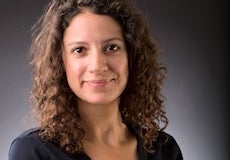Students from REC 120 Program Management and Evaluation course organize family-friendly activities at the Stork Family Y and Harper Library as part of Waterloo West Neighbour Fest.
As a teaching and research intensive university, Waterloo believes in the integration of “knowing” and “learning”. You can expect a rich learning experience incorporating scholarship, research, innovative classroom teaching, and experiential learning.
Beyond the books
We know that learning extends beyond the textbook and, often, beyond the classroom itself. In addition to Waterloo's world renowned co-operative education program, Recreation and Leisure Studies offers numerous opportunities such as practica, internships and exchanges for experiential learning. High impact education practices are also woven through the curriculum through first-year tutorials in REC 101, collaborative assignments and projects throughout all years, opportunities for undergraduate research connections with the community, service learning, and capstone courses among others.
Inspiring teachers
In the Department of Recreation and Leisure Studies, your teachers are collaborating with organizations like the World Tourism Organization, National Council for Therapeutic Recreation Certification (NCTRC), the North American Society for Sport Management, and the Canadian Index of Wellbeing to investigate and improve quality of life for individuals and society. These connections play a key role in ensuring the relevance of our curricula and of your skills as a graduate.

Professor Bryan Grimwood sees teaching as a form of mentoring committed and passionate life-long learners.

For Professor Katie Misener, teaching is less about lecturing and more about engaging.

Professor Troy Glover is building community in and outside of class.
Professor Ron McCarville discusses the importance of mutual respect between professor and student.
Supporting teaching excellence

Zara Rafferty, the department's Teaching Mentor, supports and encourages teaching excellence and best practices to improve the depth, effectiveness, and efficiency of student learning.
She works closely with the Centre for Teaching Excellence (CTE) to share expertise and resources with instructors and to develop and foster a community of practice – where faculty can share knowledge and experiences to enhance teaching success.
